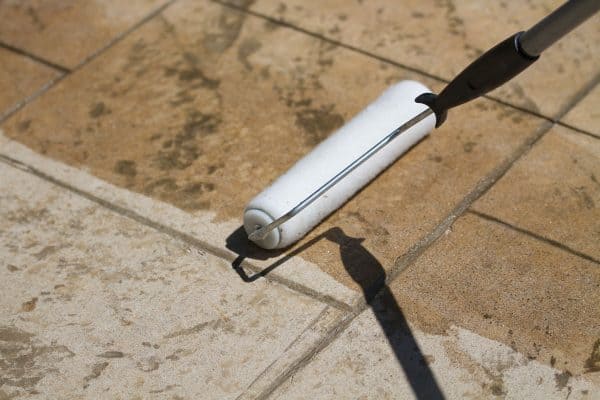Disclosure: We may get commissions for purchases made through links in this post.
Are you currently planning to incorporate porcelain pavers in your outdoor patio or porcelain tiles for your indoor flooring? Do you think porcelain pavers can withstand moisture or pouring rain and be slip-resistant? You are fortunate to come to the right place since we have already consulted the experts regarding this matter.
Porcelain pavers can be both slip-resistant and slippery. A polished and smooth porcelain paver tends to be slippery, while those with a textured surface can be slip-resistant.
Please continue reading throughout the article to expand your knowledge about porcelain pavers. Stay with us as we dig deeper for more information.
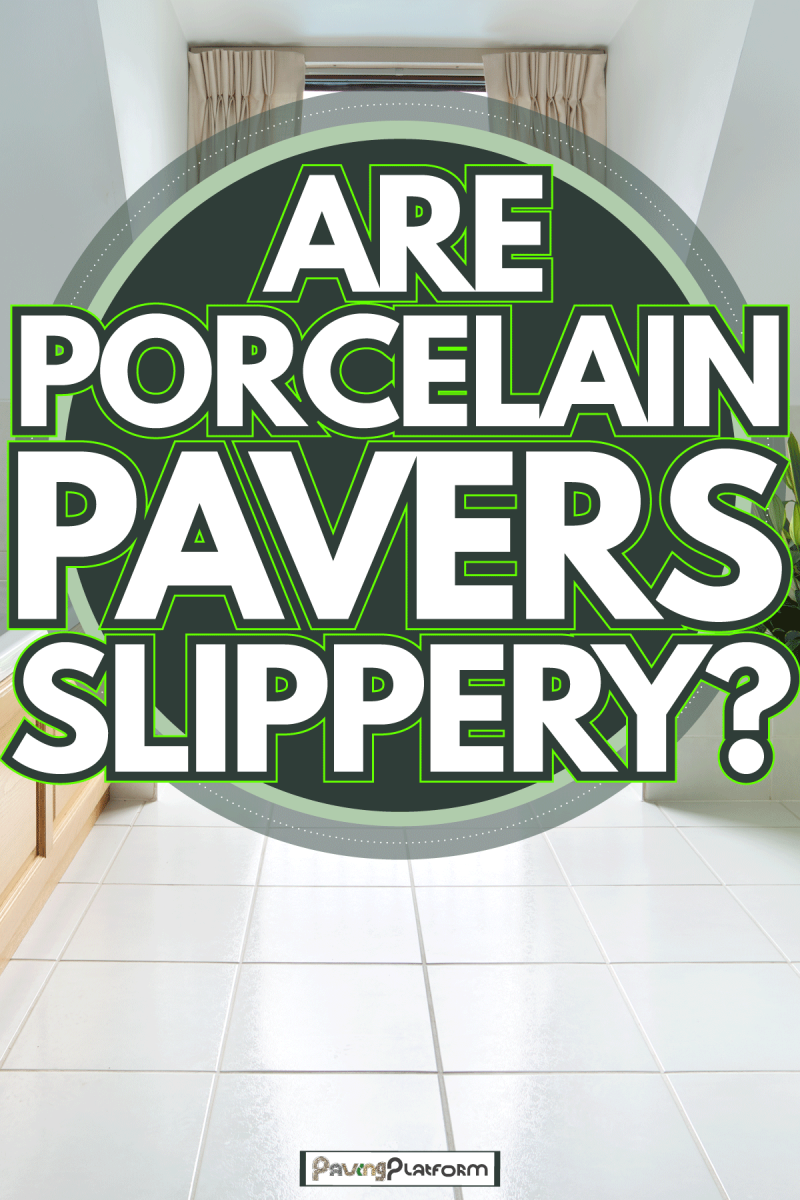
Choose Porcelain Pavers With The Right Texture
Some manufacturers offer three types of porcelain finishes, and those are:
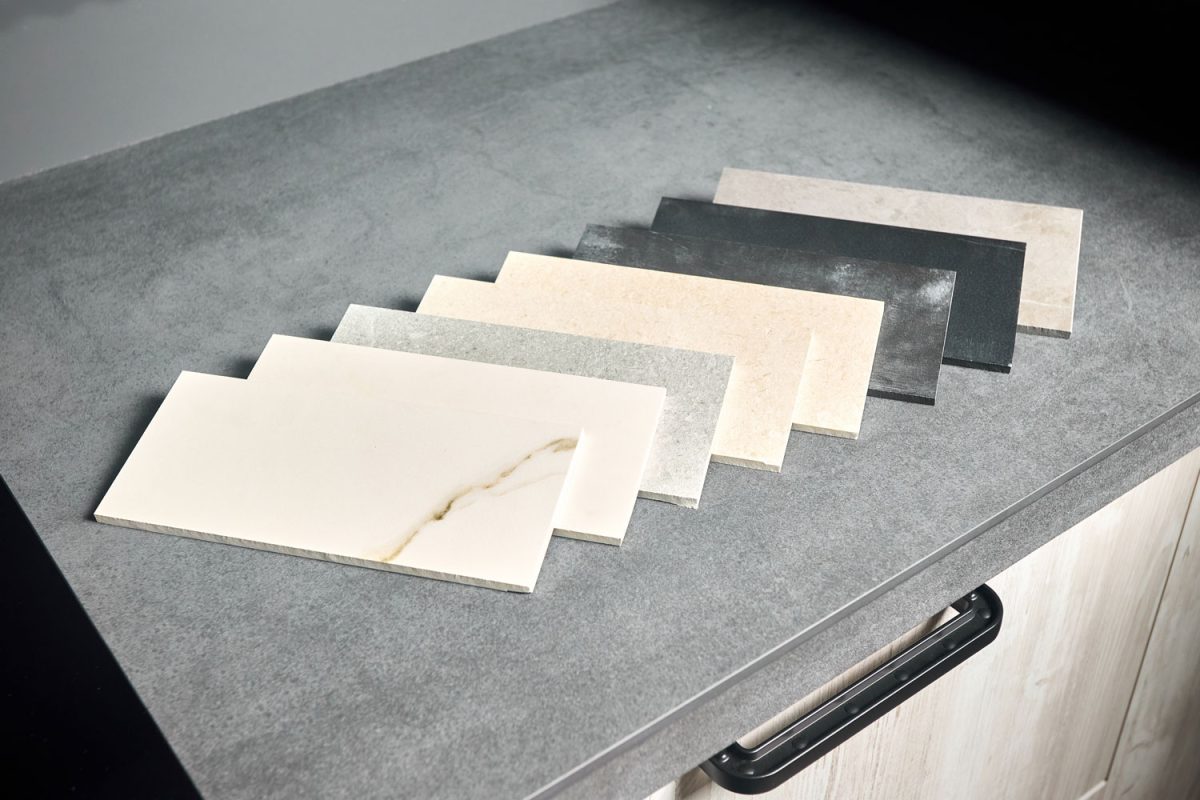
1. Textured Grip
This porcelain paver type is recommended only for outdoor use since it has the highest grip rating.
2. Fine Textured
We highly suggest this one if you are looking for a porcelain paver to match your outdoor and indoor surfaces.
3. Smooth Textured
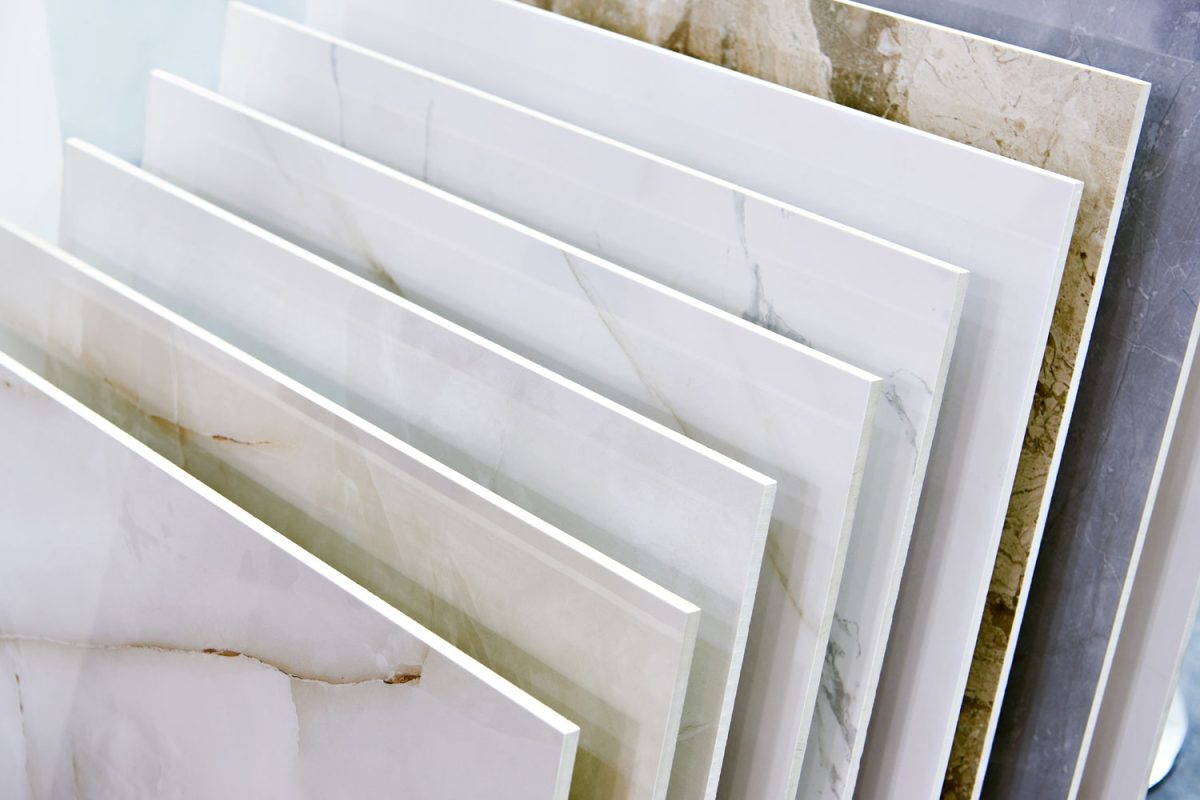
If you plan to have a porcelain paver surface indoors, this would be the best option you can have since it has a very low grip rating.
Why Use Porcelain Pavers For Indoors And Outdoors
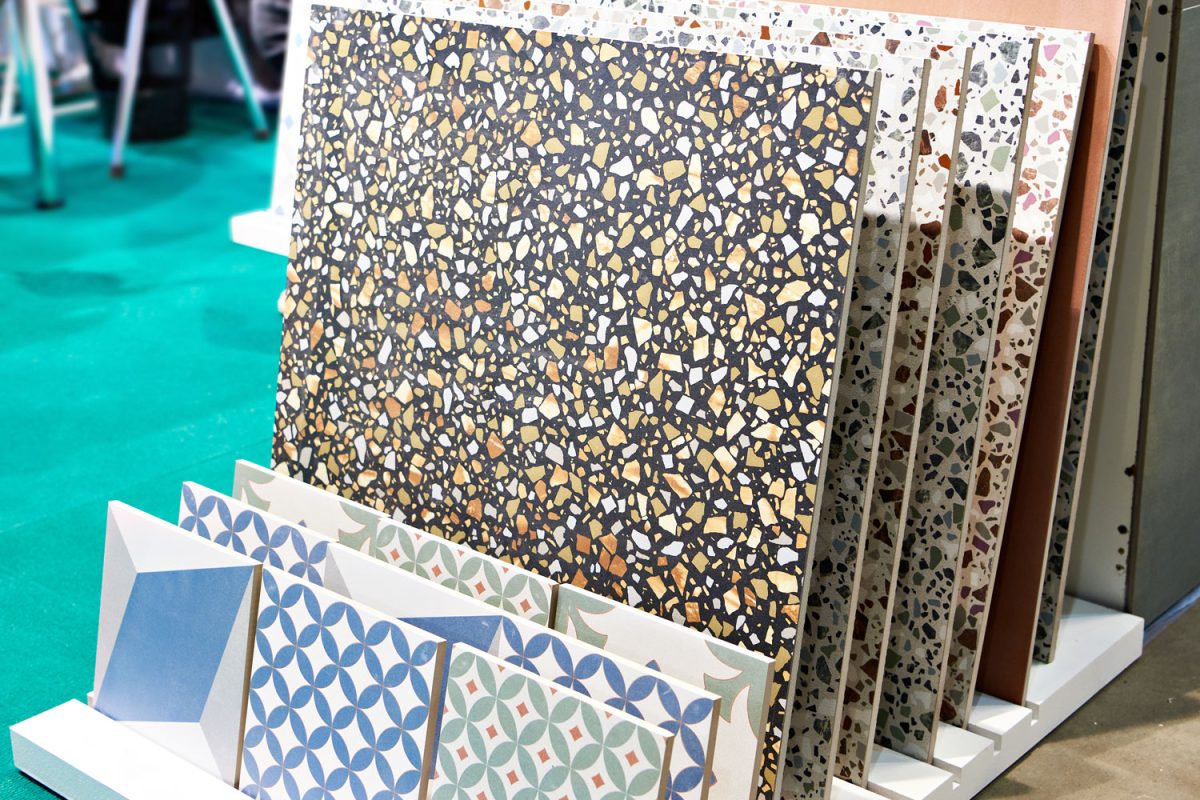
There are many factors to why we recommend using porcelain pavers for your outdoor patio. Porcelain pavers meet all the statutory safety prerequisites for thermal stress, chemical hazards, large loads, anti-slip surfaces, as well as fire resistance available in both private and public settings.
- The resistance of porcelain pavers to frost is incredible. Their physical properties stay unaltered at -58 degrees Fahrenheit up to 140 degrees Fahrenheit or more.
- A porcelain paver with 24 inches by 24 inches by 3/4 inches can resist and hold 2,200 pounds.
- One great feature of the porcelain paver is it is fireproof. Plus, it does not spread flames or give off destructive toxins.
- Porcelain pavers are a lightweight material choice. They weigh just 10 pounds per square foot or 38 pounds per 24-inch by 24-inch by 3/4-inch slab. You can quickly put them in place without using special tools and heavy equipment.
Are Porcelain Pavers Permeable?
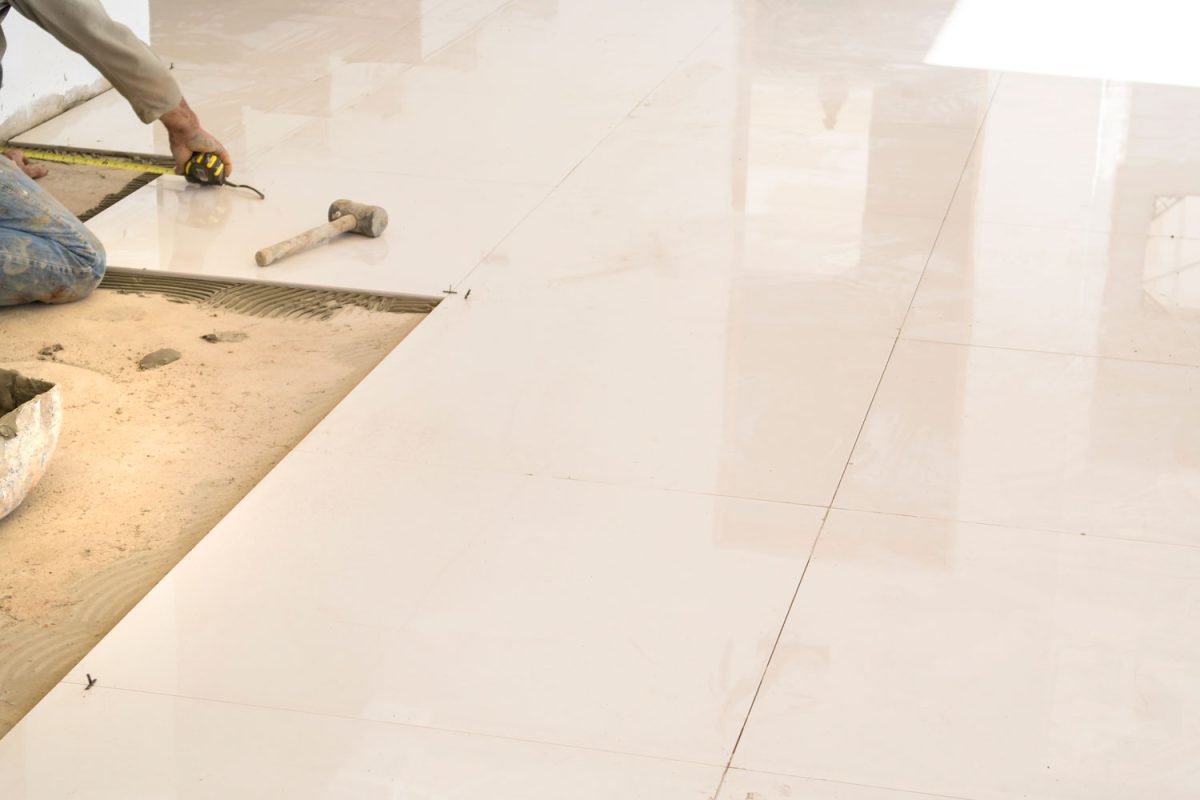
Porcelain pavers are impermeable. They don't need sealing since they offer low absorption rates. It makes porcelain pavers resistant to freeze-thaw cycling and impervious to staining because of their density; they have a meager absorption pace of less than 0.05%. In addition, this characteristic allows porcelain pavers to clean easily.
You can easily remove oil and grease stains in a porcelain paver as long as you use a suitable cleaning solution. You don't have to worry about getting your pavers stained anymore if you use the porcelain ones. If you want, you can always throw a BBQ party!
The impermeable characteristic of a porcelain paver applies to them being resistant to mildew, moss, and mold. If there is an accumulation of moss and mold on your porcelain pavers, you don't have to worry since you can remove them quickly.
How Long Do Porcelain Pavers Last?
Porcelain pavers can last up to 10 years or more, but that will depend on how well you maintain them.
Being durable is one of the most significant edges of porcelain pavers. Do you want to know how they are made solid and enduring? Porcelain pavers are kiln-fired to 1,200 to 1.400 degrees Fahrenheit. They are made with special clays and additives, resulting in a solid, wear-resistant, durable material with incredibly low water absorption.
Because of innovation and improving technology, manufacturers continuously develop stronger and thicker porcelain pavers. And because of porcelain pavers' increased load-bearing ability, they can offer us the perfect answer for both high-foot traffic and vehicular applications.
Porcelain pavers are indeed durable. However, they are more breakable compared to concrete pavers. You will have to exert more care and effort when you transport them. And as much as you can, avoid dropping the porcelain pavers on their corners and be cautious in the installation process to avoid damages and cracks.
Furthermore, since porcelain pavers are 3/4-inch thick, they are lighter than most natural stones and concrete. That characteristic makes them more accessible and cost-effective to transport and move from one place to another on a job site to install.
These mentioned capabilities of porcelain pavers can prove how durable, efficient, and great their lifespan is. You can say that this material is worth every penny!
Are Porcelain Pavers Slippery Around A Pool?

Many homeowners are trying to renovate and incorporate porcelain pavers into their pools. What is the reason? To achieve an upgraded pool decks version and maximize their summer enjoyment and fun! Because even if you expose porcelain tiles to water all day and all night, they won't become slippery. You don't have to worry when walking since they are still safe to walk on wet.
Porcelain pavers are good at maintaining their color grades throughout their existence, and they don't fade even when exposed to UV rays. This is ideal for pool decks with maximum sun exposure.
Additionally, know that porcelain pavers are invulnerable to chlorine, saline water, and salt corrosion. Another excellent feature of a porcelain paver is that it is naturally immune to acids (except to hydrofluoric acid) and chemicals. You don't have to seal it to achieve this particular feature. So, no worries about maintaining your pool with chemicals -they shouldn't stain porcelain pavers!
Additional Pros and Cons of Porcelain Pavers
Constructing any project can be challenging and stressful since there are a lot of factors to consider before starting the process. To help you at least, here are the other pros and cons of porcelain pavers that you should be aware of.
Pros
Porcelain pavers certainly don't disappoint, and we are a hundred percent sure with that. Below are the factors that you should expect from them.
They Are Aesthetically Distinguished
You can choose from numerous porcelain paver colors and styles. It will allow you to be creative with your patio and produce visually relaxing and inviting spaces. In addition, the colors of the porcelain pavers are so much richer and more profound, which makes them an excellent example of modern pavers or flooring.
Porcelain Pavers Come In Numerous Sizes
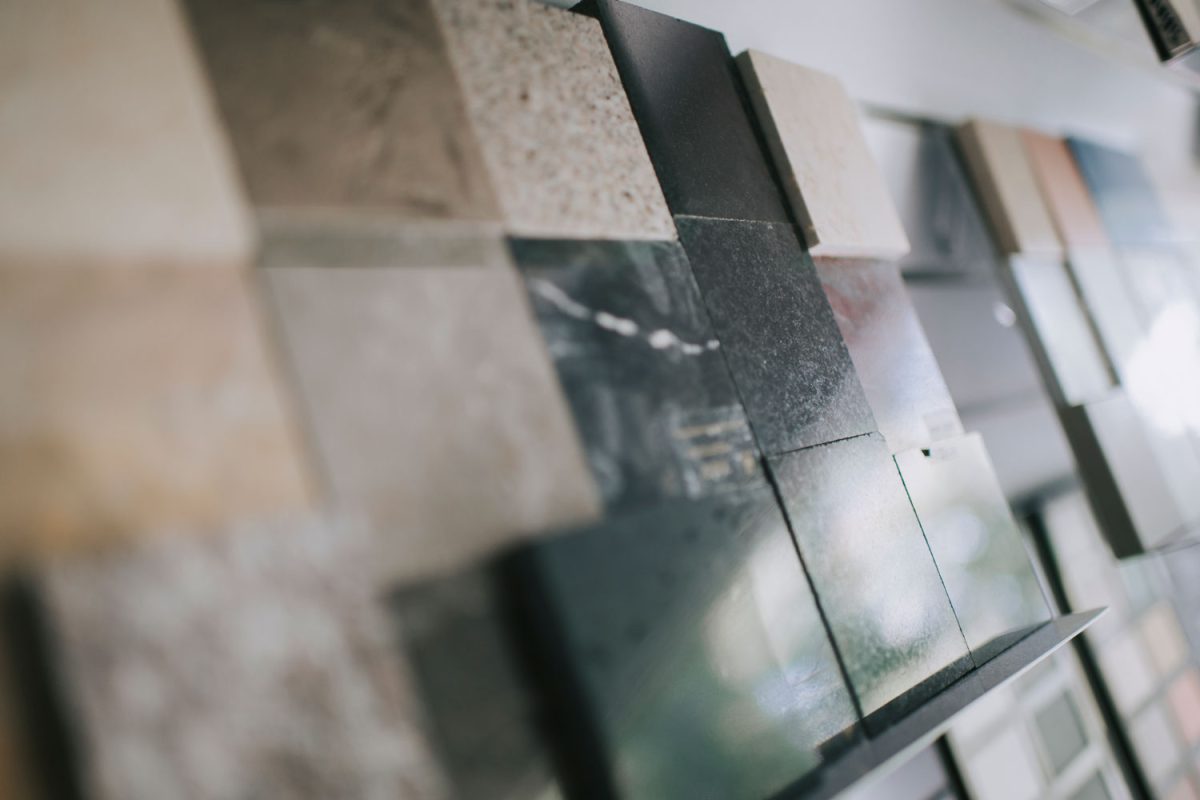
Typically, porcelain pavers are only available in 24-inch by 24-inch sizes. But as it became famous and due to development, the size options have greatly multiplied. Not only you can get a single porcelain paver as massive as 96 inches by 48 inches, but also you can obtain a block as small as 4 inches by 4 inches.
There are also available porcelain tiles just like natural wood with the size of 8 inches by 48 inches or 12 inches by 48 inches. And these sizes are not available in a concrete paver.
They Are Ideal For Covering Existing Or Damaged Concrete
When you compare porcelain pavers to concrete, they are much thinner. And that would mean they are perfect for covering cracked or weather-frayed areas or even covering the current wood patios.
Cons
Drawbacks are indeed unavoidable. So, here are the drawbacks of porcelain pavers that you should be aware of:
Porcelain Pavers Are Harder To Drill And Cut Than Concrete
Because of porcelain pavers' hard and thick features, you will need more advanced tools for drilling or cutting them. A wet saw is advisable for most significant projects, while diamond blades are preferable for cutting.
As for drilling holes, drill bits are exclusive for hard and thick items like porcelain. Also, you will need to be extra careful in drilling and cutting to avoid cracking the tiles.
On-grade Installation Means More Extensive Preparation
You will have to exert extra effort and care when you lay porcelain pavers on grade. If you put the porcelain pavers to sand or gravel beds, you should prepare the beds first. They should have a base with an adequate depth, and you need to compact them properly.
For instance, you will need to lay mortar over a strengthened concrete base a 3/4 inches thick porcelain for vehicular applications. But you can also do this with the new 1-1/8 inches thick porcelain pavers, as long as you will lay them in a correctly set and well-compacted gravel bottom.
They Are A Bit Expensive
Porcelain pavers are generally more expensive than concrete pavers. However, if we consider both their lifetime expenditures and their maintenance, build, and appearance, the porcelain pavers will cancel out the cost advantage of the concrete pavers over a long period.
Wrapping It Up
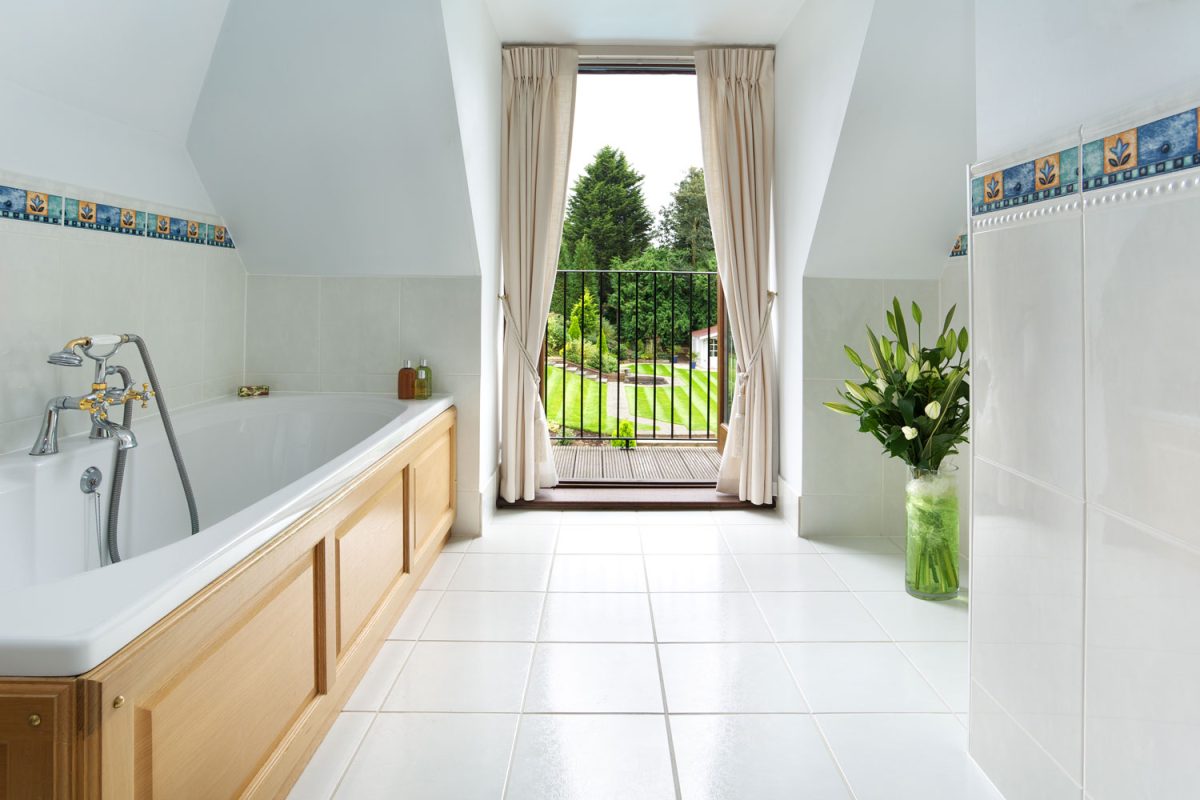
The slip-resistant quality of a porcelain paver is all about its texture and grip. The key to remember here is the rougher the texture, the more slip-resistant the surface is.
Made it to the end? For further reading, check these posts out:
Is A Flagstone Pool Deck Hot? [And How To Prevent Heat On Your Feet]
Do Pavers Need To Be Sealed? [And How To Tell If Yours Are Sealed]

![Vibrant Red Paver Stone Path, Can You Spray Paver Sealer? [How To Apply It]](https://pavingplatform.com/wp-content/uploads/2022/04/Vibrant-Red-Paver-Stone-Path-600x400.jpg)
![Properly laid out red pavers for a garden, Can You Tint Paver Sealer? [And How To]](https://pavingplatform.com/wp-content/uploads/2022/04/Properly-laid-out-red-pavers-for-a-garden-600x400.jpg)
